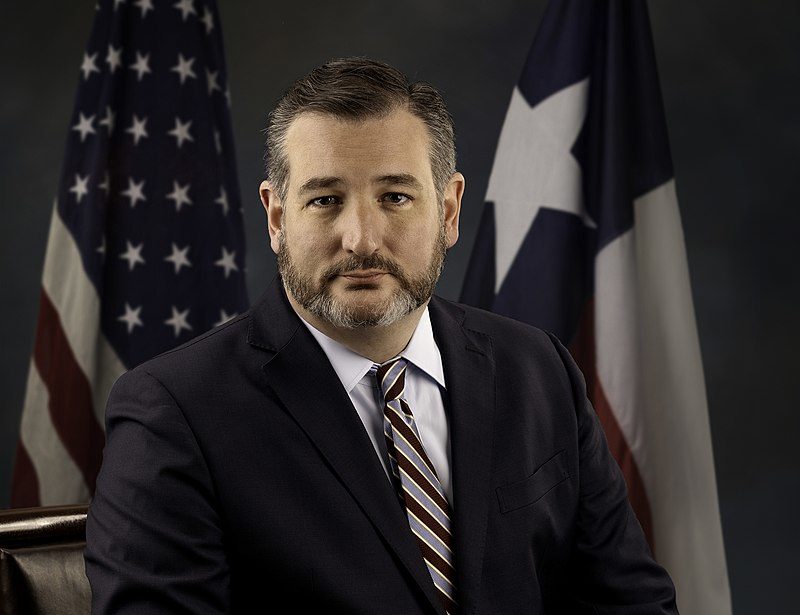U.S. Senator Ted Cruz (R-Texas), Ranking Member of the Senate Judiciary Committee’s Subcommittee on The Constitution, sent a letter this week to Senator Dick Durbin (D-Ill.), Chairman of the Senate Judiciary Committee, calling on him to bring Attorney General Merrick Garland before the committee for its July 12th hearing regarding the Supreme Court’s decision in Dobbs v. Jackson Women’s Health Organization. Attorney General Garland and the Department of Justice (DOJ) have to date failed to enforce federal law banning intimidation of Supreme Court Justices.
In the letter, Sen. Cruz wrote:
“I am requesting [Attorney General Garland’s] attendance so he may detail the steps the Department of Justice is taking to protect our Supreme Court Justices in the wake of an unprecedented harassment and intimidation campaign.
“18 U.S.C. § 1507 criminalizes any attempt to influence a judge in the exercise of his or her duties by picketing them at their home. Congress passed this law to allow judges at every level of the judiciary the freedom to exercise their judicial power free from outside influence or intimidation. Article III of the Constitution guarantees judicial independence by granting judges life tenure and salary protection so they are not influenced by anything but the law and facts in the case before them. Unfortunately, despite clear evidence that federal law was violated by mobs of protestors at the Justices’ homes, the head of the Department of Justice, and chief law enforcement officer of the United States, flatly refused to enforce federal law.”
Read the full text of his letter to Chairman Durbin here and below.
Dear Chairman Durbin,
I write to you today to request the attendance of Attorney General Merrick Garland at next week’s hearing regarding the legal consequences of Dobbs v. Jackson Women’s Health Organization. I am requesting his attendance so he may detail the steps the Department of Justice is taking to protect our Supreme Court Justices in the wake of an unprecedented harassment and intimidation campaign.
18 U.S.C. § 1507 criminalizes any attempt to influence a judge in the exercise of his or her duties by picketing them at their home. Congress passed this law to allow judges at every level of the judiciary the freedom to exercise their judicial power free from outside influence or intimidation. Article III of the Constitution guarantees judicial independence by granting judges life tenure and salary protection so they are not influenced by anything but the law and facts in the case before them. Unfortunately, despite clear evidence that federal law was violated by mobs of protestors at the Justices’ homes, the head of the Department of Justice, and chief law enforcement officer of the United States, flatly refused to enforce federal law.
A few days ago, the Supreme Court Marshal asked Maryland and Virginia officials to enforce laws that prohibit picketing outside the homes of the Justices who live in the two states. Further, the governors of Virginia and Maryland called upon Attorney General Garland to “enforce the law as it is written.” Attorney General Garland, however, has ignored such calls, doing so with near-tragic results.
On June 8, 2022, a would-be assassin, armed with a pistol and a knife, was arrested outside the home of Justice Brett Kavanaugh. He later admitted he intended to kill the Justice. Intimidation attempts have also occurred at the homes of Justice Alito, Justice Thomas, Justice Barrett and Chief Justice Roberts. In response to these threats, Attorney General Garland merely stated, “The Justice Department will not tolerate violence or threats of violence against judges or any other public servants at work, home, or any other location.” Attorney General Garland’s refusal to act, however, calls into question the sincerity of this statement.
Attorney General Garland was quick to condemn parents who attended school board meetings to protest radical policies pushed by some board members. Yet he has shown little urgency to protect Supreme Court Justices despite calls from the Supreme Court Marshal and multiple governors to do so. Attorney General Garland should be asked, under oath, why he refused to act in this instance, as well as detail his plans to uphold judicial independence and the rule of law in the face of future such intimidation campaigns.
















